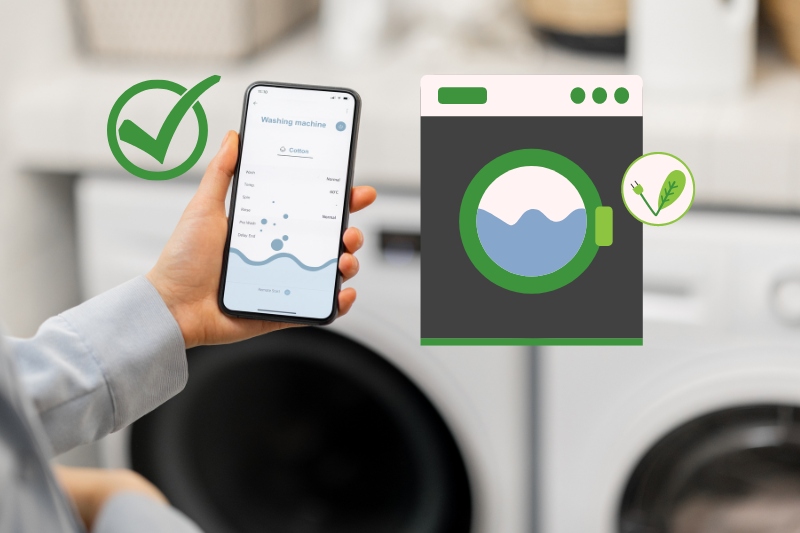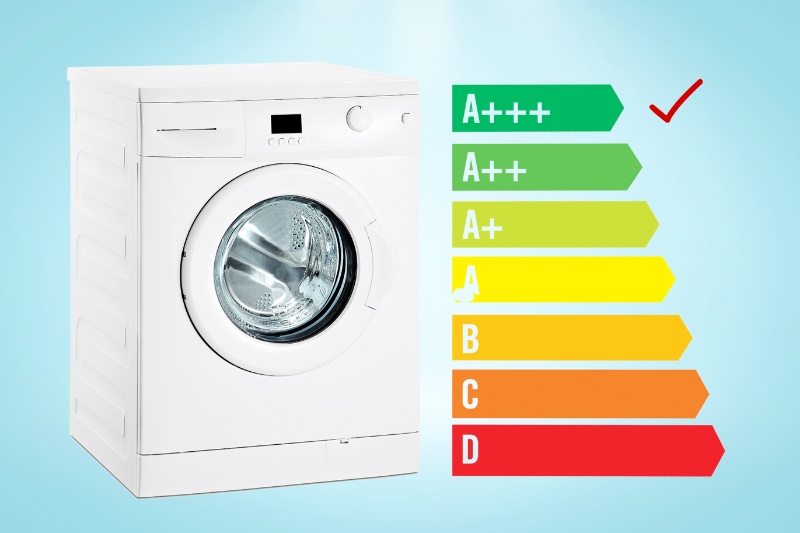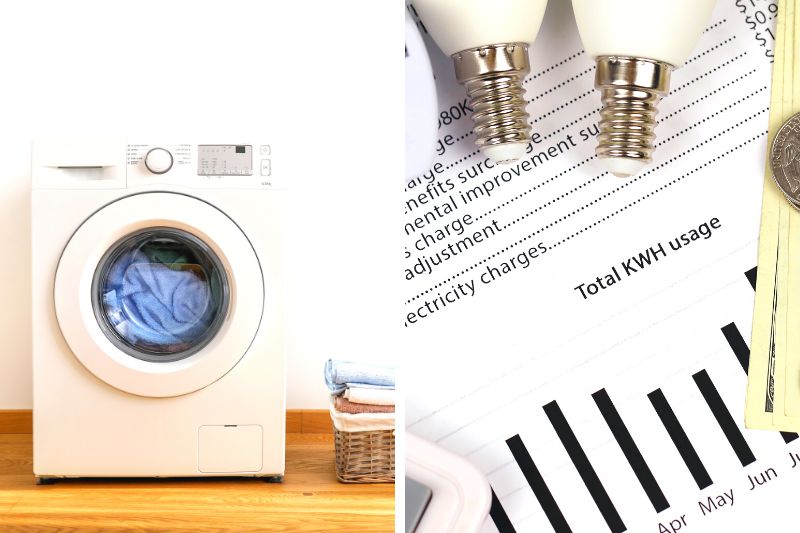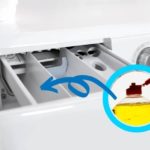Washing machines are one of the most frequently used appliances in our homes.
Larger households may even use a washing machine on a daily basis, but how many of us stop and think how much it costs us each time we do a wash, and how this adds up over a year?
It’s not always easy to work out exactly how much electricity each washing cycle uses, but we can get an average idea, and this may influence whether we buy a more energy-efficient machine.
How Much Electricity Does a Washing Machine Use and How Much Does It Cost?
The exact amount of electricity a washing machine uses can vary greatly depending on the machine in question.
The average washing machine uses 0.793 kWh of energy per cycle, costing £0.19 per cycle at current average electricity prices of 24.5p per kwh for the Energy Price Cap (EPC) period from 1 April to 30 June 2024.
To calculate the average energy usage, we looked at 20 of the most popular washing machines in the UK.
It’s important to stress that costs can vary a lot depending on how you use your machine and how energy efficient it is.
Washing machines with worse energy ratings are more expensive to run. Over the course of a year (220 cycles), the E-rated Indesit BIWMIL71252UKN washing machine, for example, uses 175 kWh of electricity. This works out at 0.8 kWh per use.
By comparison, the Haier HW80-B1439N 8 kg washing machine with an A rating uses just 115 kWh of electricity per year, or 0.52 kWh per use.
Summary
- Washing machines use an average of 0.793 kWh per use. This means they will cost £0.19 to run per cycle based on average UK electricity prices for the Energy Price Cap (EPC) period from 1 April to 3o June 2024. The most efficient machines can use as little as 0.52 kWh per cycle, costing £0.13 at current prices. The least efficient machines can use as much as 0.99 kWh per cycle, costing £0.24 at current prices.
- The average washing machine will use 174.46 kWh per year (assuming you use it 220 times a year). This will cost £42.74 per year based on average electricity prices for the price cap period from 1 April to 30 June 2024. However, a more efficient machine could cost as little as £28.18 a year.

Using an Energy Monitor
The only way to be 100% sure how much electricity your washing machine is using during the typical cycle is to use an energy monitor.
This is because there are a wide range of external factors that can influence the efficiency of an appliance that it just isn’t possible for manufacturers to take into account.
An energy monitor is simply a device that shows how much electricity is being used in your home at any given time.
If you are using a monitor that tracks your entire home, you can work out how much your washing machine is using by comparing the readings when the appliance isn’t running to when it is.
Alternatively, you can purchase monitors that you simply plug into the socket and then plug the washing machine into the monitor.
These can be purchased online and in a wide range of stores, but it is also worth reaching out to your energy provider to see if they have any offers.
Does the Energy Rating Matter?

The energy rating of a new appliance certainly is something that you should consider when purchasing a new machine.
Machines with a very poor energy efficiency rating can cost you considerably more over the course of a year than a more efficient model, even if you only use the appliance a couple of times a week.
As an example, the A-rated Haier HW80-B1439N 8 kg washing machine uses 115 kWh of electricity a year (over 220 cycles), with a total cost of £28.18.
By comparison, the E-rated Indesit BIWMIL71252UKN washing machine, for example, uses 175 kWh of electricity per year. This increases the electricity running costs to £42.88, more than double that of an A-rated machine.
It is worth remembering that there are other ways that you can reduce the running cost of your washing machine.
As an example, if you wash your laundry on a 30-degree cycle, you can save as much as 40% electricity when compared to the typical 40-degree cycle.
Studies have shown too that modern washing machines and detergents are just as effective on lower temperatures as high ones, so you have nothing to lose!
Of course, it’s also important to consider other factors which may be more relevant than running costs, such as reliability, performance and longevity of a washing machine.
If you are considering a new machine, it’s worth checking out our list of the most energy efficient washing machines on the market if you want to minimise running costs.

In The Wash is your guide to the best laundry and cleaning products, tips and tricks. Our mission is to solve the UK’s cleaning and laundry dilemmas!






